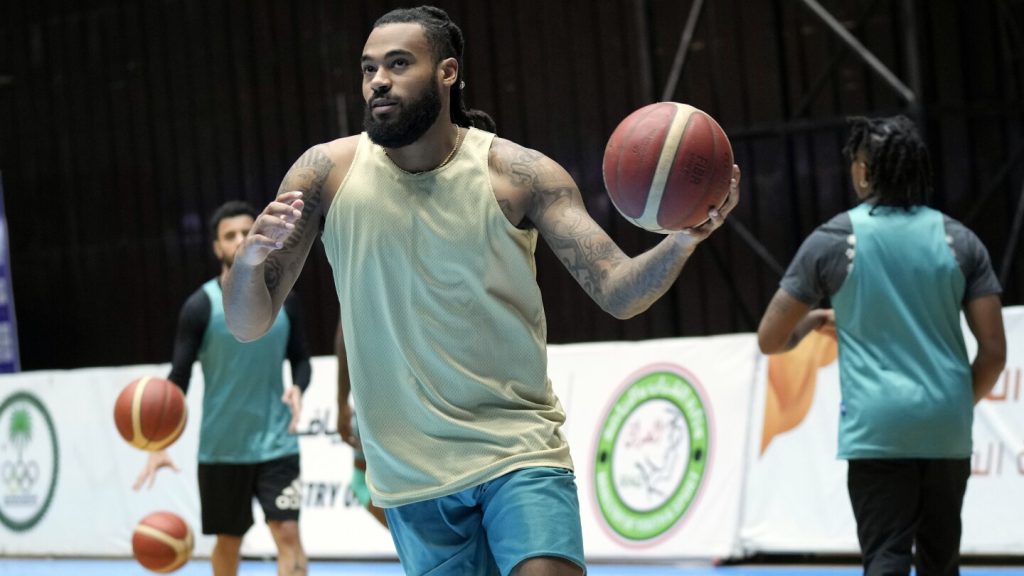A pro basketball team in Iraq, owned by a paramilitary group, has recently signed American player Uchenna Iroegbu to help lead them to a championship in the Iraqi Basketball Super League playoffs. Despite political tensions between the US and Iraq, Iroegbu, a former college basketball player who has excelled in leagues in Nigeria and Qatar, remains focused on the game and keeps his distance from political conversations. He is one of three Americans on the team and considers his assignment in Iraq to be similar to any other, despite the unique security risks and political dynamics in the country.
The Hashed al-Shaabi team, owned by a coalition of primarily Shiite, Iran-backed forces, has been involved in conflicts with the US in the region. The group joined the fight against the Islamic State in 2014 and was designated as an “independent” unit of the Iraqi army. However, some of the factions within Hashed have clashed with US forces, launching drone attacks on American bases in retaliation for US support of Israel. Despite these tensions, coach Akil Najem insists that the team and its players are separate from the politics, focusing solely on basketball and not getting involved in political matters.
American players like Iroegbu and Isaac Banks, who is also on the team, are in high demand in Iraqi basketball teams, even with owners who have tense relationships with the US government. The players earn a tax-free salary, ranging from $5,000 to $6,000 a month, along with free housing. American players have been recruited by Iraqi teams since the withdrawal of US troops in 2011, and more than 20 Americans are currently playing in Iraq this season. Despite their international status, they focus on their game and leave political and security matters to God.
Basketball in Iraq has a long history, with American sport missionaries introducing the game to the region in the 19th and 20th centuries. The sport gained mass appeal in the country, becoming almost as popular as soccer in some areas. Iraqi teams are all state-owned and sponsored by different government wings, receiving partial funding from the Ministry of Youth and Sport. While international players contribute significantly to the teams’ success, Iraqi players and fans are welcoming and supportive of their American teammates, creating a positive atmosphere for the players to focus on their game.
The Americans, including Iroegbu and Banks, communicate with their Iraqi teammates using basic English and hand gestures on the court, relying on the universal “language of basketball” to play the game. Despite the language barrier, the players bond on and off the court, engaging in activities like video games, reading, and enjoying Arabic coffee. The team’s coach ensures the players’ safety and security, but an incident of food poisoning before a game highlights the challenges and uncertainties of playing abroad. Overall, the American players remain committed to their game, contributing to the success and growth of Iraqi basketball while navigating complex political realities.


